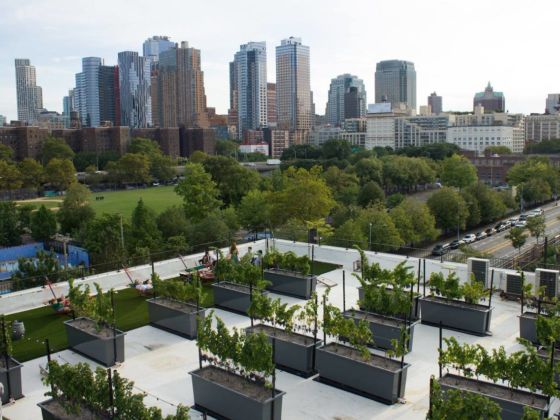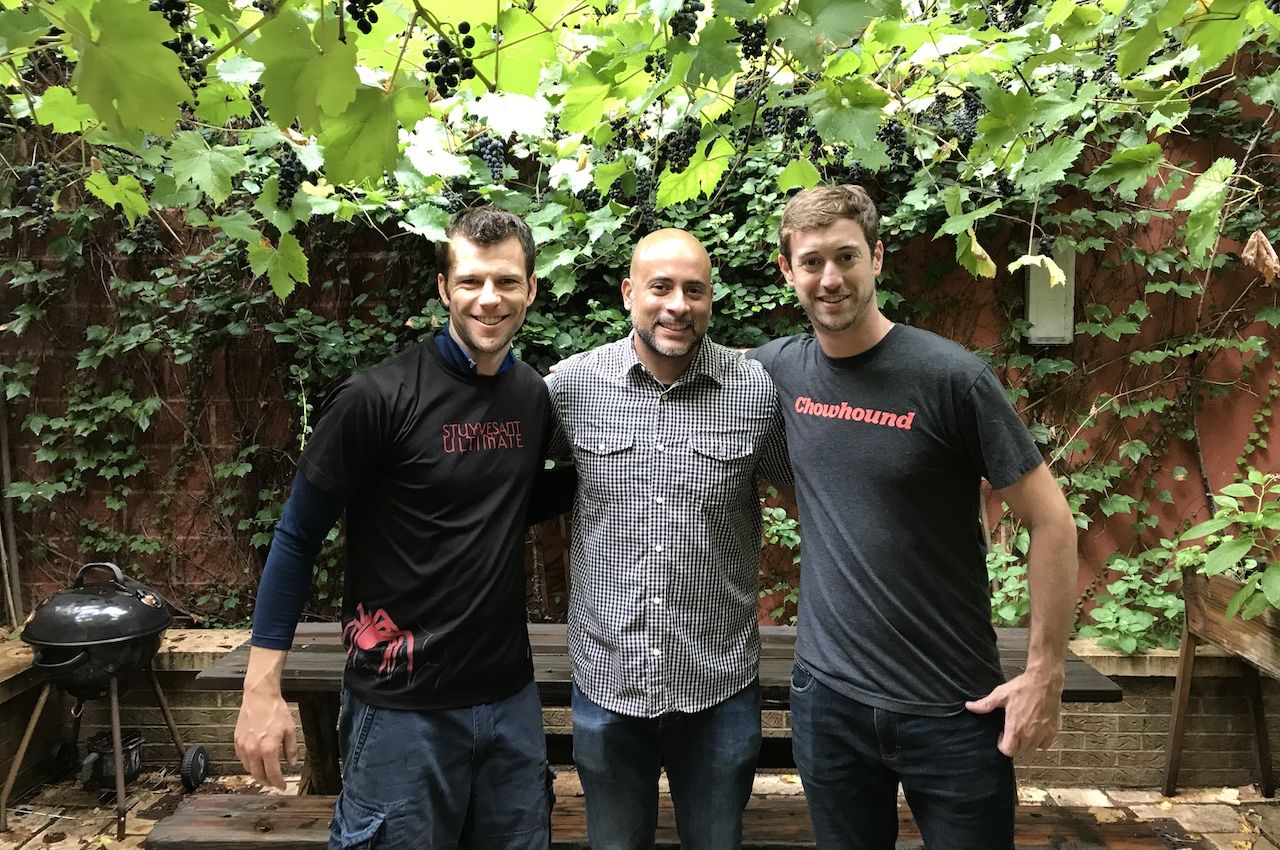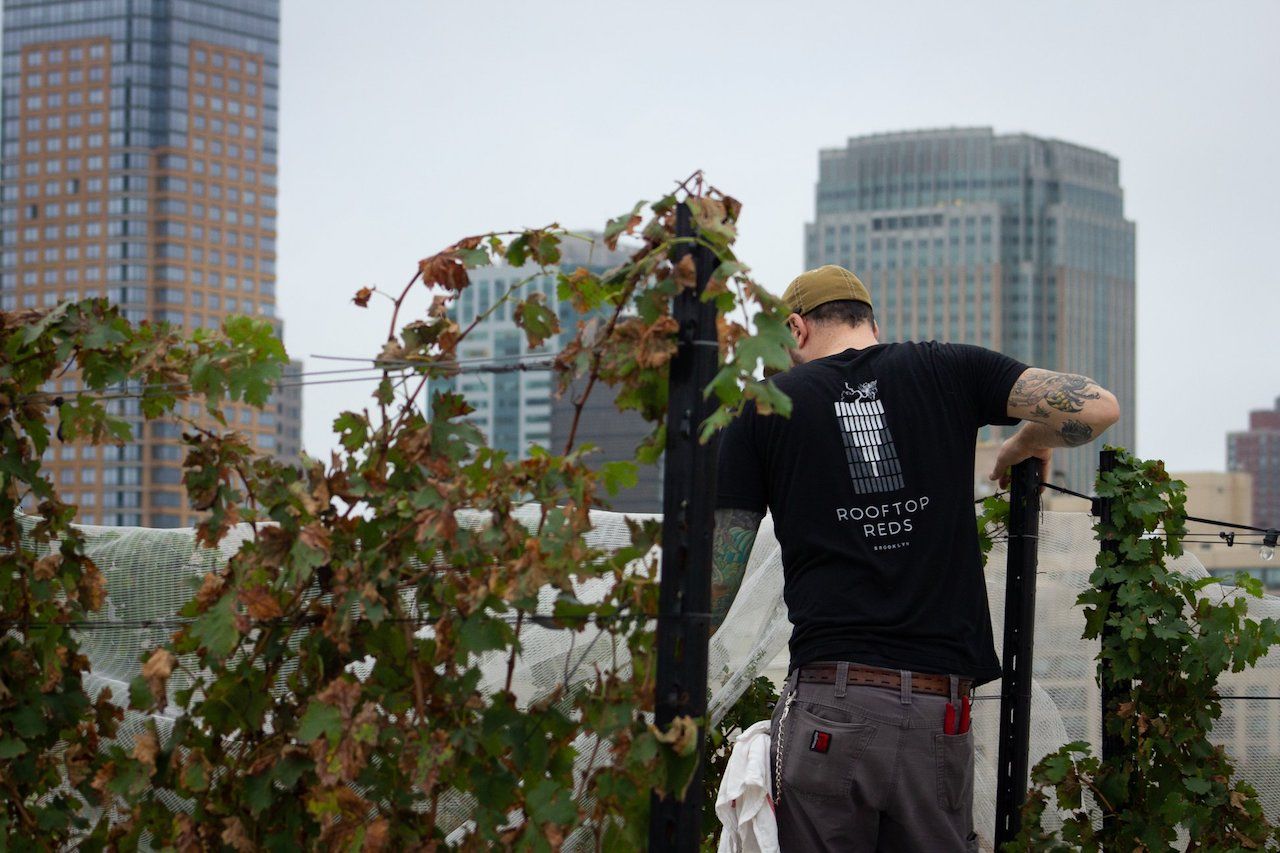You’d be hard pressed to find someone who thinks of New York City as prime real estate for grape vines. Nevertheless, a charity-driven urban farming project called Village Vines is working to turn the concrete jungle into a giant working vineyard.
The ambitious viticulture movement started in 2015 when Devin Shomaker received a phone call from someone in Brooklyn. At the time, Shomaker was in the process of opening Rooftop Reds Vineyard in the Brooklyn Navy Yard. It’s the world’s first commercial vineyard and winery on a roof, complete with Bordeaux-variety grape vines and a view of the Manhattan skyline. Shomaker’s business venture inspired the Brooklyn caller to ask about any classes Shomaker might be offering on urban farming and winemaking. At the time, Shomaker had enough on his hands with his new business, but the idea stuck with him.


